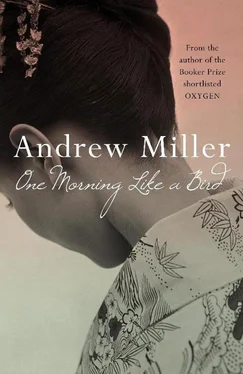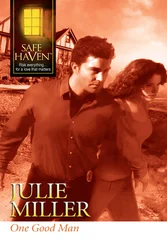Andrew Miller - One Morning Like a Bird
Здесь есть возможность читать онлайн «Andrew Miller - One Morning Like a Bird» весь текст электронной книги совершенно бесплатно (целиком полную версию без сокращений). В некоторых случаях можно слушать аудио, скачать через торрент в формате fb2 и присутствует краткое содержание. Год выпуска: 2009, Издательство: Sceptre, Жанр: Историческая проза, на английском языке. Описание произведения, (предисловие) а так же отзывы посетителей доступны на портале библиотеки ЛибКат.
- Название:One Morning Like a Bird
- Автор:
- Издательство:Sceptre
- Жанр:
- Год:2009
- ISBN:нет данных
- Рейтинг книги:4 / 5. Голосов: 1
-
Избранное:Добавить в избранное
- Отзывы:
-
Ваша оценка:
- 80
- 1
- 2
- 3
- 4
- 5
One Morning Like a Bird: краткое содержание, описание и аннотация
Предлагаем к чтению аннотацию, описание, краткое содержание или предисловие (зависит от того, что написал сам автор книги «One Morning Like a Bird»). Если вы не нашли необходимую информацию о книге — напишите в комментариях, мы постараемся отыскать её.
One Morning Like a Bird — читать онлайн бесплатно полную книгу (весь текст) целиком
Ниже представлен текст книги, разбитый по страницам. Система сохранения места последней прочитанной страницы, позволяет с удобством читать онлайн бесплатно книгу «One Morning Like a Bird», без необходимости каждый раз заново искать на чём Вы остановились. Поставьте закладку, и сможете в любой момент перейти на страницу, на которой закончили чтение.
Интервал:
Закладка:
‘You think I should come over and dig it for you? Are you afraid to get a blister on your hands? This is a final warning! If the trench is not started before nightfall . .’
And father says something back, a low voice, a slow voice. Whatever it is he says it leaves Saburo speechless.
Yuji hurries down the stairs, slips at the turn, bounces down the last few steps, almost knocks over Miyo. He meets Father at the door of the Western room. ‘Please excuse me,’ he says. ‘I ought to have started it. I will start immediately.’
He goes into the kitchen. Haruyo is steaming tofu for Mother’s evening meal. The look he gives her, loaded with rage, visibly unsettles her. He takes the lean-to key from its peg beside the door and goes out to the narrow path (the tradesmen’s path) that runs between the kitchen and the spindle hedge. He unlocks the lean-to. The air in there still tastes of summer, preserved somehow around the blades of tools, in the heat-warped wood of cobwebbed shelves. He chooses a mattock and walks through the garden holding it across his hips like a rifle. He should ask for Father’s advice, of course, for his instructions, but he starts to dig near the old pine stump, hacking at the ground until, after ten minutes, the muscles in his back begin to spasm. He crouches, brow against the mattock’s haft, cools off, then starts again, a slower, less angry rhythm that stops only when he can no longer clearly see his feet. If he is going to continue, he will need some light, and he is crossing the garden to fetch a lantern when Father summons him from the open door of the garden study. They go inside together.
‘I was just fetching a lantern,’ says Yuji.
‘Listen to me,’ says Father. He pauses. ‘I have phoned Kensuke. I have told him of our situation. I have told him I am no longer certain of my ability to protect your mother. Her tranquillity.’
‘You’re going to the farm?’
‘We will take the express on Wednesday.’
‘Wednesday!’
‘Tomorrow I will go to Setagaya. I will explain things.’
‘And me?’
‘You?’
‘You wish me to remain here?’
‘For us all to leave would draw . . unnecessary attention.’
‘I see.’
‘I have an obligation to your mother.’
‘Yes.’
‘If we stayed. If something happened . .’
‘When will you return?’
‘That will depend. Not, perhaps, until after the New Year. Do you need money?’
‘No.’
‘It may be easier for you when we have gone. I regret that we have not been able to help you more.’
‘I have been a burden to you . .’ says Yuji, mechanically.
‘You seem to be managing well enough these days.’
‘With Mr Fujitomi?’
‘You may end up a man of business, like your grandfather.’
‘It seems unlikely.’
‘Yes. Perhaps.’
‘It’s a long time since Mother travelled,’ says Yuji.
‘Yes,’ says Father. ‘Quite a long time.’
The window is a narrow rectangle a degree or so less utterly dark than the book-lined blackness of the study. Father has almost disappeared, can be seen only peripherally, as certain remote objects in the night sky are seen, by not looking at them directly. Again, they have come to the edge of a conversation, that long-postponed confessing that would begin — and either could begin it — with the words ‘After Ryuichi . .’. It might have freed them once (these two who have taken a certain pride in not speaking), but now, it seems, the time for it has passed. They have changed. They have been changed. Between them, the tilt of circumstance is quite different.
In the room the air is peppery against the lining of Yuji’s nose. He sniffs, dabs his nostrils with a finger. ‘The Wednesday express?’ he asks. For all he can see of Father, he might as well be speaking to himself.
4
Yuji is in the first car with Mother and Father. Haruyo and Miyo and most of the luggage are in the car behind. As the cars arrived late (held up by some parade in Iidabashi) and loading them took longer than expected, Father is fidgeting with the shirt cuff above his watch and scowling at the back of the driver’s head.
Yuji cannot take his eyes from Mother. How strange, how extraordinary to see her with the common light of day washing over her face! She smiles at him, but when the movement of the car jolts them in their seats she shuts her eyes as if in pain. She ought, thinks Yuji, to travel in a palanquin, or like an heirloom doll, wrapped in tissue paper inside a cedar box. How will she manage the train? And then another hour of driving, the twisting ascent to the farm on roads that at each sharp turn become rougher and narrower, more track than road? He is afraid for her, but feels too a flickering excitement, as though they were all setting off on a family outing, a trip to view the chrysanthemums at Dangozaka, a restaurant by the river. Even to the kabuki . .
At the station, two elderly porters help them with the luggage, leading the way, puffing and calling briskly for room. The Kyoto train has almost finished boarding. At the windows, little parties, or single men or women are readying themselves for the awkward moment of farewell. The porters carry the cases inside. Father and Haruyo follow them up the steps. On the platform, Yuji and Miyo wait with Mother. Miyo is shaking with sobs. Mother murmurs to her, their heads close together, but the girl can neither look up nor reply.
Father climbs down from the train. ‘There’s not much time,’ he says.
Mother takes his arm. She turns to Yuji. ‘I will be thinking of you,’ she says.
He nods. ‘I will be thinking of you also.’
They look at each other, the ghost and her son, as if they were alone together. He hopes she cannot see the fear that has taken hold of him, the wild certainty that once she has stepped onto the train he will never see her again, that she will die (fade to nothing), or he will die (in some shell-hole in China). Father and Haruyo help her up the steps, almost carrying her. As soon as she is inside, the porters jump down and swing the door shut. A ragged ball of smoke rolls down the carriage roofs. A minute later the whole train shudders, rocks backwards, and begins, with the appearance of immense effort, to creep along the platform. Father struggles with the compartment window, forces it open. ‘I will inform you of our arrival,’ he says. Is that what he says? He can hardly be heard, hardly, in the sudden flow of steam, be seen. Yuji waves to him, then, in a gesture stolen from the cinema screen — Hotel du Nord? The Citadel ? — he lifts his peach-bloom trilby from his head and holds it high until the last carriage is lost in the sunlight of midday and there are only the shining rails, narrowing and curving into the distance.
At the house, Miyo follows him like Asako’s daughter. She looks at him with anxious, childish glances, while all around them the empty rooms give off some low electric hum of absence. They go from room to room. Surely, if they are patient, if they listen hard enough, they will hear a voice, the scrape of a wooden sole on the verandah.
He opens the doors to Mother’s room. Everything in there — the sitting cushions, the red lacquer table in the alcove, the folding screen with its birds and willows, the not-quite-cold brazier — seems subtly unfamiliar, as though two hours’ abandonment has remade them into not-quite-perfect replicas of themselves. From habit he looks for his brother, but the photograph and the cross have gone, leaving only their shadows on the sand-coloured wall.
He walks out of the room, slides shut the screens. He will not go in there again. He tells Miyo to put on warm clothes, clothes she can work in, then goes upstairs and changes into a pair of old trousers, an old pullover. She is waiting for him by the bottom of the stairs. He looks at her, manages a smile, and wonders what will become of her, how well she will survive these coming times. If his red paper arrives — and who is to say it will not come tonight? — she cannot remain in the house on her own. Would she want to go to Kyoto? Or back to her family in the north, the poverty of a home she has not seen in five years? If she wanted to stay in Tokyo, perhaps he could arrange something at the telephone exchange. The young girls there live together in dormitories. She would make friends. Be safe? Safe at least from Block Captain Kitamura.
Читать дальшеИнтервал:
Закладка:
Похожие книги на «One Morning Like a Bird»
Представляем Вашему вниманию похожие книги на «One Morning Like a Bird» списком для выбора. Мы отобрали схожую по названию и смыслу литературу в надежде предоставить читателям больше вариантов отыскать новые, интересные, ещё непрочитанные произведения.
Обсуждение, отзывы о книге «One Morning Like a Bird» и просто собственные мнения читателей. Оставьте ваши комментарии, напишите, что Вы думаете о произведении, его смысле или главных героях. Укажите что конкретно понравилось, а что нет, и почему Вы так считаете.












